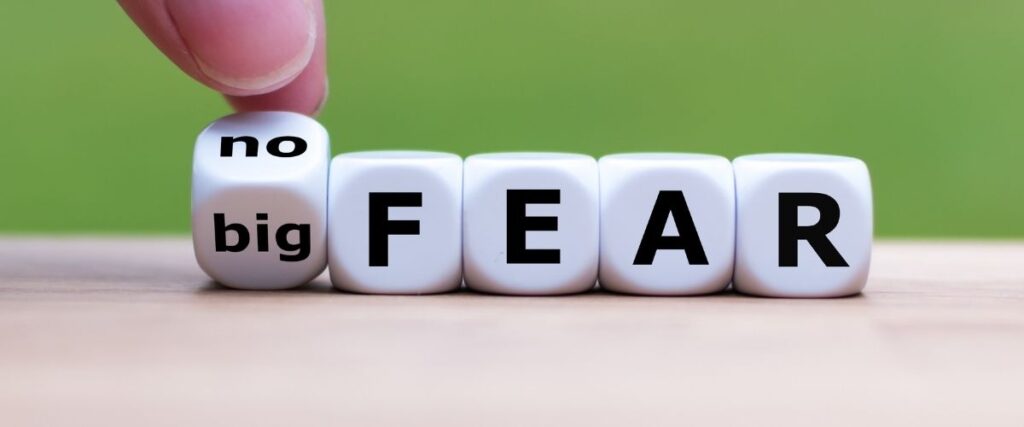The tradition of New Year’s Resolutions began over 4,000 years ago with the Babylonians, who made promises to begin their year. If they kept to their word, they believed their gods would bestow favor on them for the coming year. If not, they would fall out of the gods’ favor—a place no one wanted to be.
Today, resolutions are made …and often abandoned in very short order. 74% of Americans make some sort of resolutions each year (source: Finder.com). The top six categories of resolutions (in order) are: Health, Self-improvement, Money, Family, Love, Career. 75% of these people are confident they will achieve their resolutions. But research (US News & World Report) found that 80% actually fail to keep their resolutions. So why bother setting new goals? And how can you be among the 20% that successfully keep those goals?
First, let’s look at why resolutions fail, to better understand how to set resolutions that will work.
Kathy Caprino (a psychologist and business coach), in a Forbes magazine article looked at why resolutions fail. She identified three key factors:
- Attempt to change behavior, before changing consciousness,
- No accountability structure to help you sustain change,
- People are actually scared of (and completely resistant to) achieving a big goal …and they won’t let themselves.
Changing Consciousness
The author suggests that we need to better understand who we are, before simply attempting to make wholesale behavioral changes. When I coach clients, I encourage them to spend time understanding WHY they want to change. What are the bigger desired outcomes that they seek? What are their personal challenges that have gotten in the way of success? If you can connect desired change to a bigger purpose, it is much easier to begin to change behaviors.
As a personal example, at the start of 2021, I decided that I was tired of being obese and I wanted to live a longer life for my family – and a better, healthier life for now. My father died of a heart attack when he was just a few years older than I am today, and I was determined that I didn’t want that to be my fate, too. Armed with that greater purpose, I signed up with Kaiser for a long-term diet and mentality change program. I can report that after six months, I achieved my weight elimination goal; I am no longer obese, and I’m confident that I am on my way to keeping that weight off. But what enabled me to change behaviors, was connecting that change to a greater purpose.
Accountability Structure
Change is hard. I’ll capitalize for emphasis: CHANGE IS HARD!
The center piece of Kaiser’s weight management program is accountability. Every week, we weigh in. And as the saying goes, “Scales don’t lie.” Each week (the lifestyle program continues for 83 weeks), we meet online in a virtual accountability group, in which we are encouraged to share our successes and challenges. Every month, we must turn in a form that outlines EVERYTHING we did that prior week, in regard to our weight management: calories in, exercise, water intake, and other accountability tools. Every day, for the past year, I have tracked every meal I’ve consumed, and every bit of exercise I have done. And I have accountability support from Kaiser, from my small group, and from my accountability partner (my wife, who also went on the program with me). I have NO DOUBT, that without this accountability, I never would have successfully eliminated the weight, nor would I believe to keep it off.
Why do we need accountability?
Changing behaviors is hard. Habits (good and bad) become engrained and difficult to break. Our subconscious fights us and our desire to change comfortable patterns. So, we attempt to trick ourselves into NOT following through. Maybe we try to tell ourselves that we will “start change tomorrow…we have too much going on today”. Sometimes, we convince ourselves that we can’t “change today because we aren’t emotionally ready – but tomorrow we sure will be!” Or maybe we conveniently forget to follow-through because we aren’t actually tracking our activities.
Accountability support comes in many different shapes and sizes. Tracking is a great accountability tool you can do on your own (perhaps after enlisting a little help to get you started). Meeting regularly with someone to update your progress, your successes, and your challenges is an excellent way to utilize outside support. When I meet with my clients, I find that twice a month is a great routine to develop. Finally, you can enlist the help of a spouse, a friend, and even a co-worker to help support your accountability. Whomever you choose, give them permission to help you hold yourself accountable – they don’t need to be your task master, but they cannot be successful if you don’t give them permission to truly help you.
Fearful of Change
In Gay Hendricks’ book, The Big Leap, he writes about “your last obstacle to ultimate success.” Caprino writes that in interviewing Hendricks, she concluded that the “last obstacle” are four hidden barriers to success.
- The first barrier is “feeling fundamentally flawed.” We hear of the “imposter syndrome” and that somehow, we are undeserving of great success because we believe we have fundamental flaws.
- The second barrier is a feeling of disloyalty or abandonment – i.e., we pull back from greater success because we fear we may end up all alone.
- Her third barrier is a belief that more success will bring bigger burdens.
- The fourth barrier is the fear of outshining others. As an example, perhaps as a child you were told to be careful to not “outshine” others for fear of making people “feel bad”.
The bottom line on fear is that Hendricks concluded that the stronger barrier to success is not external factors, but rather the hidden barriers of fear that we put up ourselves. Rather than shy away from success, you should look again at your own fears of being successful – understand them, address them, and don’t let them hold you back. If you face these fears, you might just unlock unimaginable success in 2022.
Summary
Most people set some sort of resolutions at the beginning of the year. Many of them fail, but some succeed. Don’t let the possibility of failure drive you to never try. And don’t let your own internal fears of success prevent you from enjoying the type of success you are truly capable of achieving. If you don’t even try to create change in yourself or your business, you can be almost guaranteed that positive change will not take place. But, if you avoid the three pitfalls of resolution failure (Changing your consciousness, Accountability, and overcoming your internal fears of change), you might find that you will enjoy tremendous success in this upcoming year.
Next week in Part 2 of 3, I will outline the TEN CRITICAL FACTORS for getting your business off to a FRESH START in 2022.
Carter Welch is an accomplished business leader, consultant and coach responsible for driving success in numerous businesses large and small. A former Procter & Gamble and Pillsbury executive, he focuses today on guiding small business owners to identify obstacles, overcome fear, develop winning strategies, lead organizations and ultimately, to achieve great success. He can be reached at 707-339-2842 or by email at carter@carterwelch.com.
Know that change can set your business apart and help you grow. To find out more, reach out to us here at Protea Financial. We would love to help!





